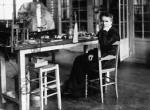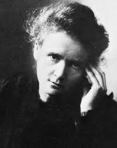“All I want is education and I am afraid of none”
Malala is a young girl of 16 years old but she is already an inspirational figure known the world over.
She comes from the valley of Swat, Pakistan. Her father was her greatest source of inspiration and the staunchest supporter.
At 11 years old Malala wrote a diary for the BBC describing the daily troubles she would encounter while going to school. In 2012 she was shot point blank in the face for being a supporter of girls education. So far she has won numerous awards for her endeavors, a Nobel Peace Prize included. She is in charge of the Malala Fund a non profit organization which advocates a greater access to education for girls in Pakistan and all over the world.
Malala started her efforts in behalf of education when terrorists invaded her country. She remembers that schools were blasted, music and cinema were prohibited and women were banned from going around freely. 2 options were then available to her, she recalls. Silence and cohabitation with terrorism or speaking out and die. She chose the second and was actually shot in the face. Once recovered she found many supporters in her country and outside. So began to speak about women education everywhere. The subjects of her thoughts are women: from the little girls in Pakistan forced to labour to Indian women in a widespread danger of sexual abuse.
She now acknowledges that women are “facing issues” in every country, not only the developing ones, but also in the modern states. The first time she toured the West, was astonished at the sight of women walking alone along the streets, sitting in parliaments, or having a job they like. Nonetheless she is of the opinion that although gender equality is written in laws, it is still not complete in terms of practical life. In parliaments women are a small percentage, CEOs are mostly men sexism is more subtle and hidden and at the end women are not given the roles that they deserve.
Solution can be achieved by starting to speak about these problems. Malala in convinced that words are a powerful tool for driving change.







